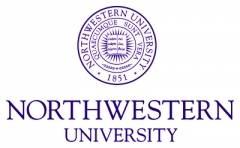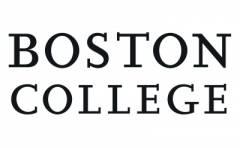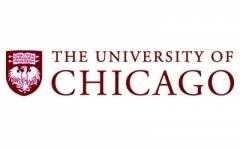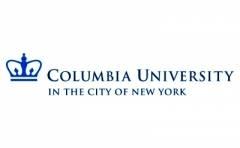Best Counseling Psychology colleges in the U.S. 2025
Over the last decade, we’ve seen an increase in the awareness and importance of overall health and well-being. Tragedies at the international level have opened our eyes to the need for healthy ways to cope with grief and loss. High-profile individuals who lost their battles with depression, like Robin Williams and Amy Winehouse, have woken us up to this serious problem and started powerful conversations. An estimated 43.6 million Americans struggle with mental illness, according to the National Institute of Mental Health. What used to be seen as a shameful stigma for nearly 20% of the population is starting to be seen as a health issue that can and should be treated and prevented.
At the forefront of these conversations are professionals who make a huge impact on individuals’ lives, like counseling psychologists. Counselors, psychologists, and other mental health professionals enter into the challenging and rewarding work of helping people overcome their problems and realize their full potential.
The field of mental health is growing. Not only are we increasing awareness on the importance of mental health, but health insurance reforms are allowing access to preventative and therapeutic care to more and more Americans. The Department of Labor Statistics predicts that opportunities in this field will grow by 19 percent in the next decade, a much higher growth rate than other professions.
Our world needs people to help others through therapy and counseling. Whether you have been impacted by the help of a counselor or see the growing need for caring professionals to come alongside others, considering a profession as a counselor or psychologist is an honorable way to make an impact in your community. If this is something you’re interested in, take a look at our comprehensive overview of this rewarding career.
Click Here to See the Best Colleges in the USBest Counseling Psychology colleges in the U.S. for 2025
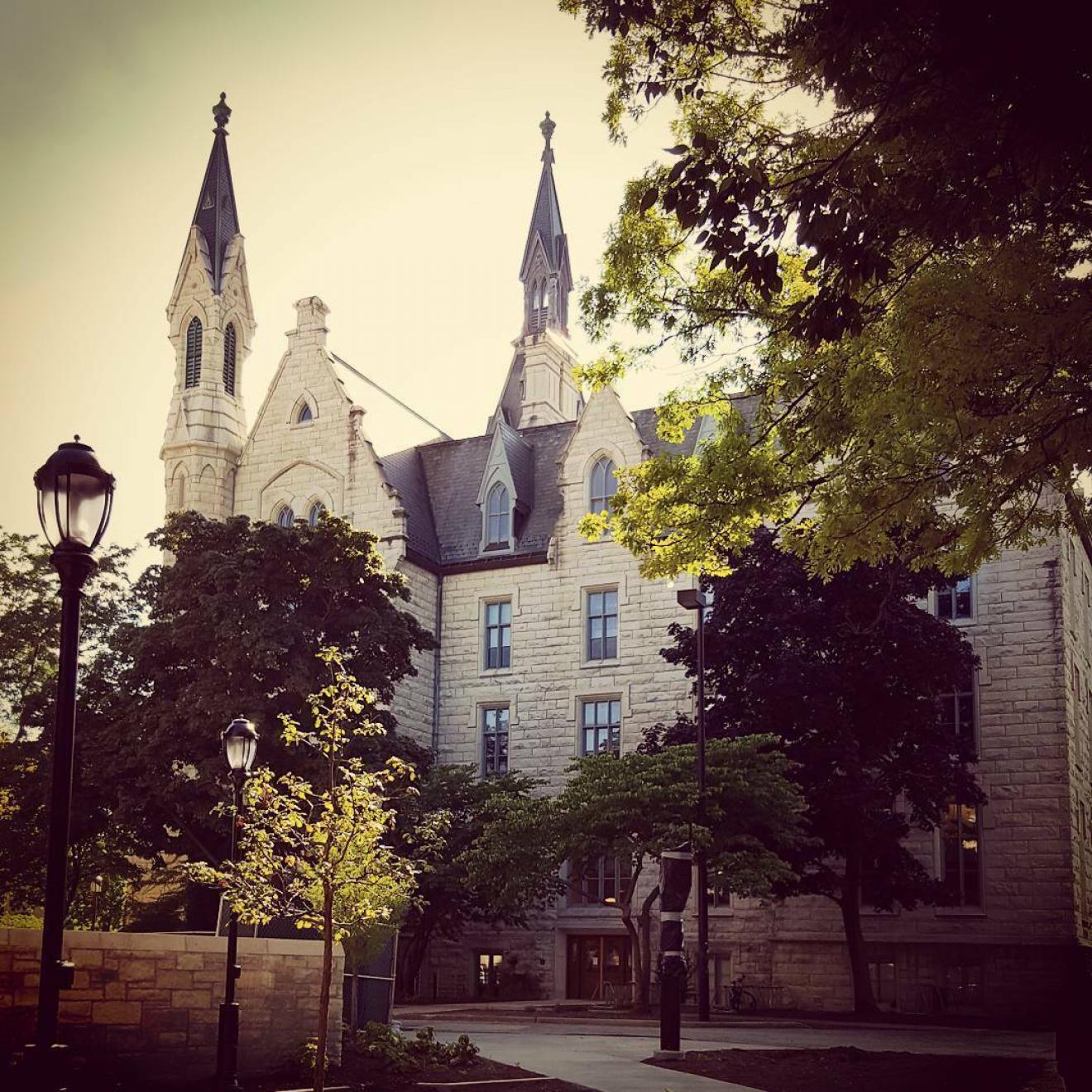
Location: Evanston, IL and online
Programs Offered: Master of Arts in Counseling
This top-ranked school offers a cutting-edge program for those who want to make an impact in the world of mental health. Set just outside of the culturally rich metropolis of Chicago, students at Northwestern have an opportunity to be immersed in the dynamic world of providing therapy to a diverse set of clients. For those needing more flexibility, Northwestern offers a high-quality online master's program as well. The program prides itself on being at the forefront of research and breakthrough therapy approaches. Students are taught to be reflective practitioners in a “learning-by-doing” model that immerses them in clinical work from the beginning. The fact that 100% of their counseling graduates passed the National Counselors Examination is a testament to their strong academic program.
Boston College offers 2 Counseling Psychology degree programs. It's a large, private not-for-profit, four-year university in a small city. In 2022, 7 Counseling Psychology students graduated with students earning 7 Doctoral degrees.
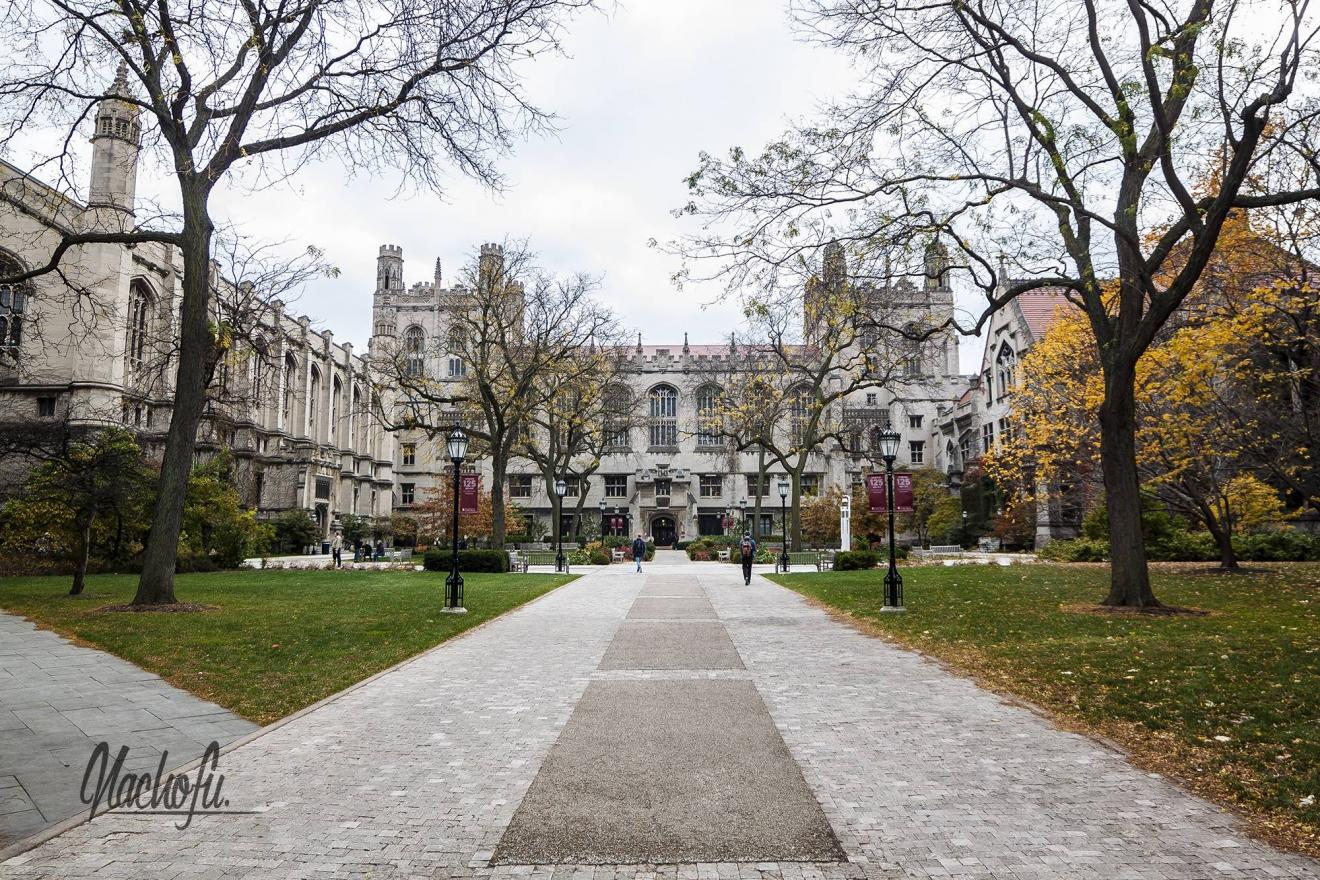
University of Chicago offers 3 Counseling Psychology degree programs. It's a large, private not-for-profit, four-year university in a large city. In 2022, 49 Counseling Psychology students graduated with students earning 35 Bachelor's degrees, 9 Doctoral degrees, and 5 Master's degrees.

Location: New York City, NY
Programs Offered: Clinical Psychology MA, Ph.D., Counseling Psychology MA, Ed.M, Ph.D
Right in the heart of Manhattan, Columbia University has a platform to speak into the issues of diversity that are growing in our nation. In addition to raising awareness about the narratives of non-white Americans, they offer one of the only counseling degree programs with an emphasis on Latina/o Mental Health. Their program has a commitment to have experiential training and self-awareness as integral in their courses. The exposure to field-shaping research and a range of opportunities prepare students at Columbia University to be well equipped in a variety of careers.
Lehigh University offers 2 Counseling Psychology degree programs. It's a medium sized, private not-for-profit, four-year university in a small city.
University of Denver offers 2 Counseling Psychology degree programs. It's a large, private not-for-profit, four-year university in a large city. In 2022, 62 Counseling Psychology students graduated with students earning 56 Master's degrees, and 6 Doctoral degrees.
Northeastern University offers 3 Counseling Psychology degree programs. It's a very large, private not-for-profit, four-year university in a large city. In 2022, 28 Counseling Psychology students graduated with students earning 23 Master's degrees, and 5 Doctoral degrees.
Boston University offers 2 Counseling Psychology degree programs. It's a very large, private not-for-profit, four-year university in a large city. In 2022, 1 Counseling Psychology students graduated with students earning 1 Bachelor's degree.
University of Houston offers 1 Counseling Psychology degree programs. It's a very large, public, four-year university in a large city. In 2022, 5 Counseling Psychology students graduated with students earning 5 Doctoral degrees.
Fordham University offers 2 Counseling Psychology degree programs. It's a large, private not-for-profit, four-year university in a large city. In 2022, 11 Counseling Psychology students graduated with students earning 11 Doctoral degrees.
Find local colleges with Counseling Psychology majors in the U.S.
What is Counseling Psychology?
The American Psychological Association (APA) recognizes counseling psychology as a specialty within professional psychology. Counseling psychology practitioners talk with patients to gain an understanding of the situations or behaviors negatively affecting their lives. Using this knowledge, counseling psychologists work with the person seeking counseling on decision-making, possible solutions, and coping mechanisms.
Professionals in this field analyze everyday life stresses—work, social, school, family—at different times in a patient’s life and help them better their emotional and mental health to improve their overall wellbeing. Counseling psychologists also assess, diagnose, and treat more severe psychological symptoms.
While pursuing a degree in counseling psychology, you enhance your analytical and critical thinking skills in order to teach future clients how to improve their lives and cope with distress.
Bachelor's Degree in Counseling Psychology
A career in counseling psychology generally starts with an undergraduate degree in psychology. Some students may complete their bachelor’s degree and find entry-level work in environments like:
- Mental health centers
- Substance abuse facilities
- Community outreach programs
- Prisons
- Schools
However, the majority of counseling psychology positions require a master’s degree or higher. While the field of counseling psychology requires a post-graduate degree, there are several undergraduate areas of study that would be helpful if this is a career you are interested in pursuing. A bachelor’s degree in psychology or mental health would provide a great foundation for counselors or psychologists. If you have an area that you want to specialize in, you may consider getting a degree that caters to that. If you want to work with children or in a school setting, an education degree would be beneficial. If you are wanting to help underprivileged demographics, a degree in social work would make sense. Many people choose counseling psychology as a second career, so regardless of your background, or experience, counseling programs accept a variety of people.
Admission requirements and standards for undergraduate psychology programs vary by institution. Things applicants may need to submit when applying to a school include:
- A high school transcript listing classes, GPA, and graduation date
- Letters of recommendation
- Standardized test scores (SAT or ACT)
- A personal essay or response to essay prompts
Courses in Undergraduate Counseling Psychology Programs
The exact courses you take in a counseling psychology bachelor’s program vary by interests and institutional offerings. However, all prospective undergraduate psychology majors should anticipate classes such as:
- Introduction to psychology — a general overview of the discipline.
- Research methods in psychology – coming up with topics to explore and designing studies to collect that information.
- Statistical methods in psychology – a look at how to interpret data and judge validity.
- Neuroscience – understanding the brain and nervous system and their effect on psychological response .
- Cognitive development – how people think, learn, and problem-solve at various stages of their lives.
- Abnormal psychology – understanding unusual patterns of behavior, thought, and action that may signify a mental disorder.
- Personality – examining theories about individual differences in thinking, feeling, and behaving.
- Social psychology – looking at the effects other people have on an individual’s behavior.
How Long Does It Take to Get a Counseling Psychology Bachelor’s Degree?
A bachelor’s degree in psychology typically takes four years to complete. Accelerated online studies may help ambitious students shave off some of that time. Likewise, someone who previously completed an associate’s degree may be able to count some coursework towards the requirements of the bachelor’s degree.
Master's Degree in Counseling Psychology
To be a practicing counselor, you must pursue graduate level work. Typically, counseling programs are within the education department at universities. In addition to approximately 60 hours of coursework, programs often have internship components as well as several thousands of hours in supervised practice. In addition to training, counselors must pass state testing in order to become licensed. If you are considering a master's in counseling, you will want to look for programs that are accredited by the Council for the Accreditation of Counseling and related Educational Programs (CACREP).
A master’s degree in counseling psychology gives students the educational experience to start their careers. When you choose a counseling psychology graduate program, a world of career options can open for you. You can go down one of many avenues—school counseling, social work, private practice, organizational counseling, and more. Depending on your passions and choice of specialty, common career outcomes include:
- School or organizational counselor
- Social worker
- Group counselor
- Therapist
A master of counseling psychology can work with almost any patient population: K-12 students, professionals, athletes, geriatric patients, parents, and more.
Master of Counseling Psychology Salaries and Career Outlook
The job outlook for master of counseling psychology graduates is good, especially considering the many opportunities available in various settings. According to the Bureau of Labor Statistics, psychology careers are projected to grow 3% every year for the next ten years. Median pay in 2021 is $82,180 per year or $39 per hour.
Keep in mind that projections do not guarantee job growth or a career as a counseling psychologist.
Master of Counseling Psychology Career Paths, Salaries, and Outlook
Individuals who pursue a graduate counseling psychology degree have dozens of options and career paths based on their specialization or special interest. Social workers, counselors who work in healthcare settings, sports and athletic counselors, and career counselors are only a few opportunities you can take with a master’s degree in counseling psychology.
| Career | Salary | Projected Job Growth (2020-2030) | About the Position |
| Rehabilitation Counselors | $37,530 per year | 10% | These counselors assist those with physical, mental, or developmental disabilities live fuller, more independent lives. |
| Psychologists | $82,180 per year | 8% | Psychologists study cognitive and emotional behavior and note how people relate to one another in different environments. They conduct research, work directly with patients, or assist school counselors and social workers. |
| School and Career Counselors | $58,120 per hour | 11% | School and career counselors assist students in developing academic and social skills to help them succeed as adults and decide their future careers. |
| Social Workers | $51,760 | 12% | Social workers assist various people, from health clinics to schools, and solve problems in their daily lives. |
Pros and Cons of Master’s Programs in Counseling Psychology
There are several benefits to pursuing a master’s in counseling psychology, including:
- A high median income of $80,000
- The option to specialize in population groups that interest you
- Steady job outlook growth
- A fulfilling career for students who love people and analytics
The career path has some cons, as well:
- High-stress environment
- Requisite continued education training
- Time and cost of additional years of study
A master’s in counseling psychology can be an excellent choice for those who enjoy learning and stay calm under pressure or in high-stress and emotionally taxing situations.
MA in Counseling Psychology vs. Master of Counseling
People from counseling psychology and other counseling program backgrounds aim to help individuals make sense of their current stressors and support their mental and emotional health. Still, the two are very different in scope and educational requirements.
A Master of Arts (MA) in Counseling Psychology is, at its core, a scientific discipline with a focus on human behavior. Clinical research, research analysis, and application of this knowledge to patients are components of counseling psychology and any other psychology degree.
This degree is also a stepping stone to doctoral programs, like a PsyD, if desired. The MA in Counseling Psychology takes approximately 2-4 years and 60 credit hours to complete, and this is after first earning a bachelor’s degree.
Some common specializations include:
- School/child psychology
- Behavioral psychology
- Clinical psychology (which lead to careers in mental health counseling)
- Organizational psychology
- Social work
Someone with a master’s degree in counseling is more focused on diagnosing, treating, and supporting the mental health of their patients while drawing on psychological research. This is a slightly more interdisciplinary approach to mental health that incorporates ethics, art, literature, and philosophy. A master’s in counseling takes about 18 months to three years to complete (in addition to an undergraduate degree).
Specialization programs focus on overcoming personal issues through different modalities. Completing the program will help sharpen a student’s skills in preparation for a career in the field and working with various patients.
How Long Does it Take to Get a Counseling Psychology Master’s Degree?
There’s no exact answer to how long a counseling psychology master’s degree takes to complete. Degree completion times range from 2-4 years in addition to a bachelor’s degree. Factors that influence how long the master’s degree takes to complete include:
- Previous education
- Online learning
- Part-time vs. full-time learning
- Accelerated program availability
Your program’s course load also plays a role in how long it takes you to earn your degree.
Admission Requirements for Master of Counseling Psychology Programs
Standard admission requirements for the different master of counseling psychology programs include:
- GRE - The GRE test covers verbal, quantitative reasoning, and writing. Although some master’s programs no longer require the GRE, psychology programs typically do.
- Transcripts - The program requires a full transcript from your undergraduate college with an average 3.0 GPA.
- Resume - Programs want to see your personal and professional accomplishments, like volunteer and work experience.
- Essay - Much like a cover letter, the essay helps you stand out. You should describe qualifications, explain why you chose the field, and outline career goals.
- Letters of Recommendation - Plan two or three letters from mentors, past professors, and employers.
- Background Check - In most programs, you’ll need to undergo a background check, especially when participating in internships and fieldwork.
Counseling Psychology Master’s Degree Costs
The median annual tuition for a master’s degree in counseling psychology is about $20,000. This can vary considerably depending on several factors, including whether you attend online or on campus, in-state or out-of-state tuition costs, financial aid packages, and whether you’re in full-time or part-time attendance.
Courses in Graduate Counseling Psychology Programs
Graduate programs often allow you to specialize in specific counseling areas. Thus, many of the classes you take are geared toward your desired career outcome, such as marriage and family therapy or vocational counseling.
However, all enrolled in master’s programs in counseling psychology tend to receive instruction in core areas such as:
- Ethical and legal issues in counseling
- Counseling skills
- Counseling theory
- Case conceptualization
- Psychological assessments
- Developmental psychology
- Psychopathology
- Psychophysiology
- Statistical techniques and research methods
- Group counseling
- Multicultural counseling
Students should also expect to complete a supervised practicum/internship in a counseling or mental health setting. This hands-on experience proves vital to both future careers and licensure qualifications. An online seminar in which students and faculty discuss the experience may accompany the training, but students should plan on fulfilling the actual training at a physical location.
For specifics on how practical experience requirements are being handled in light of the COVID-19 pandemic, consult individual schools of interest.
How Long Does It Take to Get a Counseling Psychology Master’s Degree?
Earning a master’s in counseling psychology involves completing 45-60 credits. The exact number varies by institutional program and your desired concentration. In terms of completion time, this translates to a range of 2-5 years.
Factors influencing length include:
- Previous education/transferable credits
- Part-time vs. full-time learning
- Online vs. on-campus learning
- Whether you select an accelerated program or not
Doctoral Degree in Counseling Psychology
People wishing to become counseling psychologists usually earn either a PsyD (Doctor of Psychology) or a PhD (Doctor of Philosophy) in psychology. These advanced degrees allow a wider scope of practice and the ability to provide patients with more therapy and treatment options.
A PsyD takes 4-6 years to complete, while a PhD program runs 5-7 years. Admission to either type of program can be quite competitive.
Doctorate in Psychology (PsyD or Ph.D.): If you are more intrigued by the research aspect of this field, you may consider getting a Ph.D. in Psychology. This degree is also required if you would like to become a counseling psychologist. A Doctorate of Psychology or PsyD, on the other hand, is one of the highest degrees in the field of psychology. The cream of the crop, if you may. This would be the ideal degree to pursue if you plan to teach within the field. However, these programs are a real commitment. They can often take four to six years to complete. In addition to the courses and clinical experiences that are similar to a master’s program, Ph.D. students also complete a dissertation and a year-long internship in their field of interest. Accreditation for these programs comes from the American Psychological Association, or (APA).
Certification and Licensure in Counseling Psychology
In many areas, counseling psychology positions require a license and certification. Prospective students should review licensure requirements for their desired industry to understand exactly what they’ll need to qualify. Other essential factors include regional requirements, educational requirements, and requirements for specific careers.
Counseling Psychology Certification and Licensure
When considering a counseling psychology career, it is important to look into specific licensing requirements from the get-go. Licensing requirements may play a significant role in the educational institution and path a student chooses.
In most states, counseling psychologists need a doctorate in psychology, an internship, at least 1-2 years of supervised professional experience, and a passing score on the Examination for Professional Practice in Psychology. Hospitals and clinics may require counseling psychologists they hire to possess certification from the American Board of Professional Psychology.
Other types of counseling occupations also require licensure and potentially a specific degree. Marriage and family therapists, for example, need a master’s degree, 2,000-4,000 hours of post-degree supervised clinical experience, and a passing score on a state-recognized exam.
Good sources of information on state licensure include:
- The Association of State and Provincial Psychology Boards
- The National Board for Certified Counselors
- The Association of Marital and Family Therapy Regulatory Boards
- Commission on Rehabilitation Counselor Certification
Note that some states and employers require that a prospective employee’s degree come from an APA-accredited program. Finding out the status of institutions of interest before pursuing a degree is a smart move.
Another important thing for aspiring counselors and psychologists to remember is that licensure requirements differ by state. Schools oftentimes gear their counseling psychology program toward the standards set by the state in which they are located.
A student who chooses an on-site or online program from an institution in one region but ultimately wants to work somewhere else geographically should figure out how the qualifications translate. This certainly isn’t to say one can’t pick a school based in a different state – just keep an eye on licensure requirements to avoid an unpleasant surprise down the line.
What Can I Do with a Degree in Counseling Psychology?
A degree in counseling psychology prepares you for a career assisting others with personal and/or relationship problems. People who choose this course of study generally cite a desire to improve the well-being of others as their main reason for pursuing this field. Pursuing a career in counseling psychology requires at least a master's degree, but you could go on to pursue even higher degrees.
The discipline also offers promising job prospects. The U.S. Department of Labor includes mental health counselors, marriage and family therapists, substance abuse and behavioral disorder counselors, and rehabilitation counselors on its list of Bright Outlook occupations. These careers are projected to grow faster than average during the time period of 2020-2030.
Also, with the U.S. Centers for Disease Control (CDC) reporting 40 percent of American adults struggling with mental health or substance use during the COVID-19 pandemic, demand for services continues to soar.
Earning an Online Counseling Psychology Degree
Can You Earn a Counseling Psychology Degree Online?
Now more than ever before, many schools offer a counseling psychology degree partially or entirely online. Online studies are an excellent alternative for busy and working students as they come with more flexibility, less expensive fees, and no commute. Working professionals often favor this way of learning so they can continue holding a job and fulfilling familial obligations while earning a degree. Online education also eliminates additional costs like campus housing and transportation.
Of course, there’s nothing like the whole college experience, and many great programs are offered on college campuses nationwide. Also, hands-on components such as internships and practicums, however, get completed at a physical location under professional supervision. Students work with their institution to find sites in line with their geographical location and interests. Some online programs also require a short period of residency on campus.
How Long Do Online Courses Take to Complete?
Online grad programs are not all the same and may have varying options that define how long the program takes to complete. For example, synchronous courses that are taught online and start/end at predetermined times move much faster than asynchronous courses. However, an asynchronous course is prebuilt and self-paced, ideal for anyone who wants more flexibility.
Hybrid courses combine online and in-person elements but stick to a more traditional timeframe. If a class is offered online only and is also self-paced, there’s usually an undefined period of time for you to complete the course.
Some schools offer accelerated online courses that shrink the timeline of a course from 16 weeks to 8-10-weeks. Online accelerated degrees can be a great choice if you want to jump into your career quickly; however, they do take a substantial amount of energy and focus to complete.
There isn’t a set timeline for finishing most online programs, but the typical student finishes within five years. It’s best to check with your program to determine if and when credits expire.
Online Master’s in Counseling Psychology
Earning a master’s in counseling psychology positions you for greater career possibilities. Applicants to counseling psychology graduate programs usually hold a bachelor’s degree in psychology but sometimes earned a degree in a related field like education or social work.
Just as for undergraduate psychology studies, a variety of online programs exist at the graduate level. This setup allows greater flexibility in choosing an institution and creating a schedule that works with your lifestyle.
Applying for admission to an online master’s program in counseling psychology may involve submitting:
- An official college transcript from undergraduate studies listing classes, GPA, and degree awarded with date
- A resume of work history with dates and duties
- Descriptions of relevant activities such as volunteer work or participation in professional associations
- Letters of recommendation
- A personal statement or responses to essay prompts
- Scores from the GRE (Graduate Record Exam)
Counseling Psychology Career and Salary Overview
Life on this planet has changed significantly over the last few years. One of the most significant changes has been the increase in awareness and normalization of mental health disorders, leading to a greater need for those with a master’s degree in counseling psychology.
What was considered taboo in years past is now accepted, and, as more and more people seek mental health counseling, opportunities in this field are expected to increase. According to the U.S. Bureau of Labor Statistics, mental health counseling jobs will increase by 23% in the next eight years.
Entering a career in counseling psychology can be both rewarding and scary. Is a master’s degree in counseling psychology right for you? Before deciding, learn more about the field, what to expect, and how to get started.
Schools and universities, hospitals, clinics, employee assistance programs, crisis centers, and social service agencies are some of the many places that hire people with a background in counseling psychology. Some professionals opt to go into private practice as therapists, counselors, or psychologists.
This chart provides specifics for a few common career outcomes for graduates of counseling psychology programs:
| Career | Salary | Projected Job Growth (2020-2030) | About the Position |
| Psychologists | $82,180 | 8% | Counseling psychologists help people understand and cope with personal and relationship problems. |
| Marriage and Family Therapist | $51,340 | 16% | Therapists help couples and families better understand one another and work through challenging life situations. |
| Rehabilitation Counselors | $37,530 | 10% | Rehabilitation counselors help individuals with mental, emotional, or physical disabilities find employment and develop independent living skills. |
| Substance Abuse, Behavioral Disorder, and Mental Health Counselors | $47,660 | 23% | These counselors advise, treat, and support people suffering from alcoholism, drug addiction, and mental health problems. |
Counseling Psychology Career Resources
People interested in counseling psychology may find the following organizations helpful to their educational and career endeavors:
- Counseling Psychology Overview – American Psychological Association
- A Career in Counseling – American Psychological Association
- Counseling Psychology Information and Resources
- Practice Resources – Society of Counseling Psychologists
- American Psychological Association – Consider this long-respected group boasting 122,000+ members an ideal starting place for information on all matters related to psychology. Its website includes publications, webinars, databases, career development advice, academic guidance, and articles on both evergreen and current topics in psychology.
- American Counseling Association – This professional and educational organization has been dedicated to the growth and enhancement of the counseling profession since 1952. Members gain access to award-winning publications, job boards, networking opportunities, and industry updates.
- American Association for Marriage and Family Therapy – Professional education and job development are two of the many areas covered on the website of this leading organization representing the interests of marriage and family therapists. Members receive free legal consultations, discipline-related magazine and journal subscriptions, and opportunities to interact with colleagues across the world.
- The Association for Addiction Professionals – Since 1972, this organization (commonly known as NAADAC) has been representing the professional interests of counselors, educators, and others involved in addiction prevention, treatment, recovery, and support. Its website includes a special resource section designed for student members.
- American Mental Health Counselors Association – This organization is dedicated to helping counselors meet the needs of those they serve as well as advancing the profession. Individuals still in school may find the organization’s student community particularly supportive and interesting.
Internships in Counseling Psychology
Supervised professional experience is a vital component of counseling psychology doctoral programs. Students pursuing online studies should think of their program as a hybrid arrangement rather than purely virtual. Doctoral candidates work with their institution to find suitable on-site settings in which to gain counseling experience.
Counseling Psychology FAQ
List of all Counseling Psychology colleges in the U.S.
| School | Average Tuition | Student Teacher Ratio | Enrolled Students | |
|---|---|---|---|---|

|
Northwestern University Evanston, IL | 15 : 1 | 23,161 | |

|
Boston College Chestnut Hill, MA | 17 : 1 | 15,287 | |

|
University of Chicago Chicago, IL | 11 : 1 | 18,339 | |

|
Columbia University in the City of New York New York, NY | 21 : 1 | 34,782 | |

|
Lehigh University Bethlehem, PA | 13 : 1 | 7,394 | |
Article Sources
- Adler University: https://www.adler.edu/
- American Psychological Association: http://www.apa.org/
- California Institute of Integral Studies: http://www.ciis.edu/
- Columbia University in the City of New York: http://www.columbia.edu/
- Counsel for Accreditation of Counseling and Related Educational Programs: http://www.cacrep.org/ Counseling Psychology: http://www.counselingpsychology.org/
- Counselor-Licence: http://www.counselor-license.com/articles/becoming-a-counselor.html
- Bureau of Labor Statistics: http://www.bls.gov/oes/current/oes193031.htm http://www.bls.gov/ooh/community-and-social-service/mental-health-counselors-and-marriage-and-family-therapists.htm http://www.bls.gov/ooh/life-physical-and-social-science/psychologists.htm
- Lamar University: http://www.lamar.edu/ Lindsey Wilson College: http://www.lindsey.edu/
- National Institute of Mental Health: https://www.nimh.nih.gov/health/statistics/index.shtml
- Naropa University: https://www.naropa.edu/
- National Board for Certified Counselors: http://www.nbcc.org/Exam/NationalCounselorExaminationForLicensureAndCertification/ Northwestern University: http://www.northwestern.edu/
- The Seattle School of Theology & Psychology: http://theseattleschool.edu/
- University of Pennsylvania: http://www.upenn.edu/
- Webster University: http://www.webster.edu/
- http://www.psychology.uct.ac.za/psy/career/graduateskills

